Ruimsig April 2024
April 25, 2024
PRE-PRIMARY
Powder War
Did you know that sensory play is a vital part of early childhood development? At Grade 00, we believe in the power of sensory experiences to stimulate young minds and bodies.
Recently, we had an exciting sensory play session with powder, which unexpectedly turned into a fun powder war. This spontaneous activity not only engaged the children but also taught them valuable lessons about textures, creativity, and social interaction.
Sensory play is crucial as it helps children build nerve connections in the brain's pathways, supporting cognitive growth, language development, and problem-solving skills. It also enhances fine and gross motor skills, making it an integral part of our daily routine.

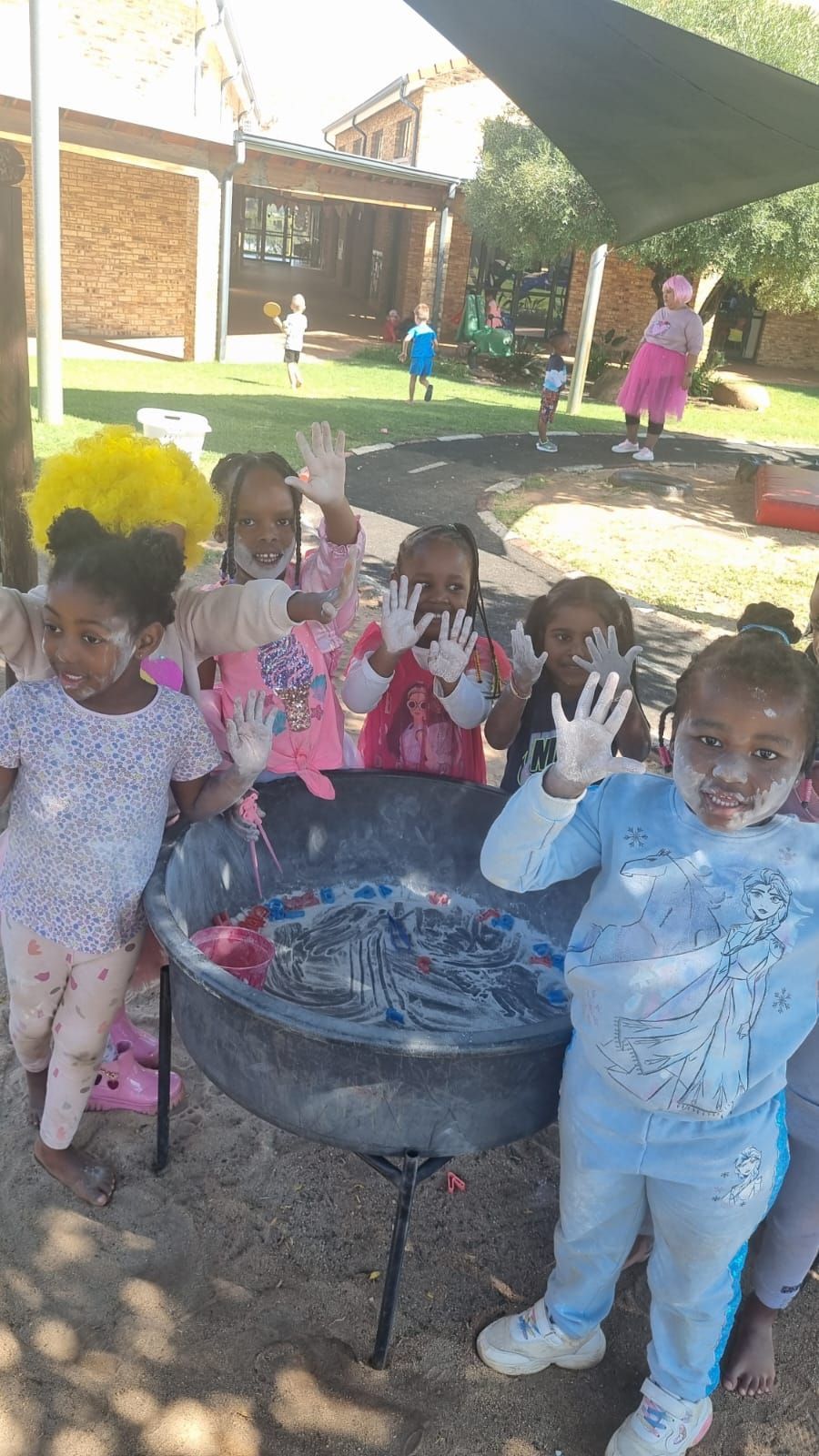
Earth Day
Crawford Ruimsig joined the global celebration of Earth Day
Since 1970, Earth Day has been a symbol of environmental protection, with events worldwide coordinated by Earth Day Organisation. This year's official theme, "Planet vs. Plastics," highlights the urgent need to address plastic pollution.
The school took action by switching off lights during lesson 5, conserving power for an hour. Our Preparatory students pledged to make changes that benefit the planet, and we sorted waste into categories like plastics, food, and polystyrene for recycling and reuse. In addition to this, our Pre-Primary Crawfordians also got involved, making wonderful masterpieces while learning about Earth Day.
Together, we are making a difference for our planet. Happy Earth Day!

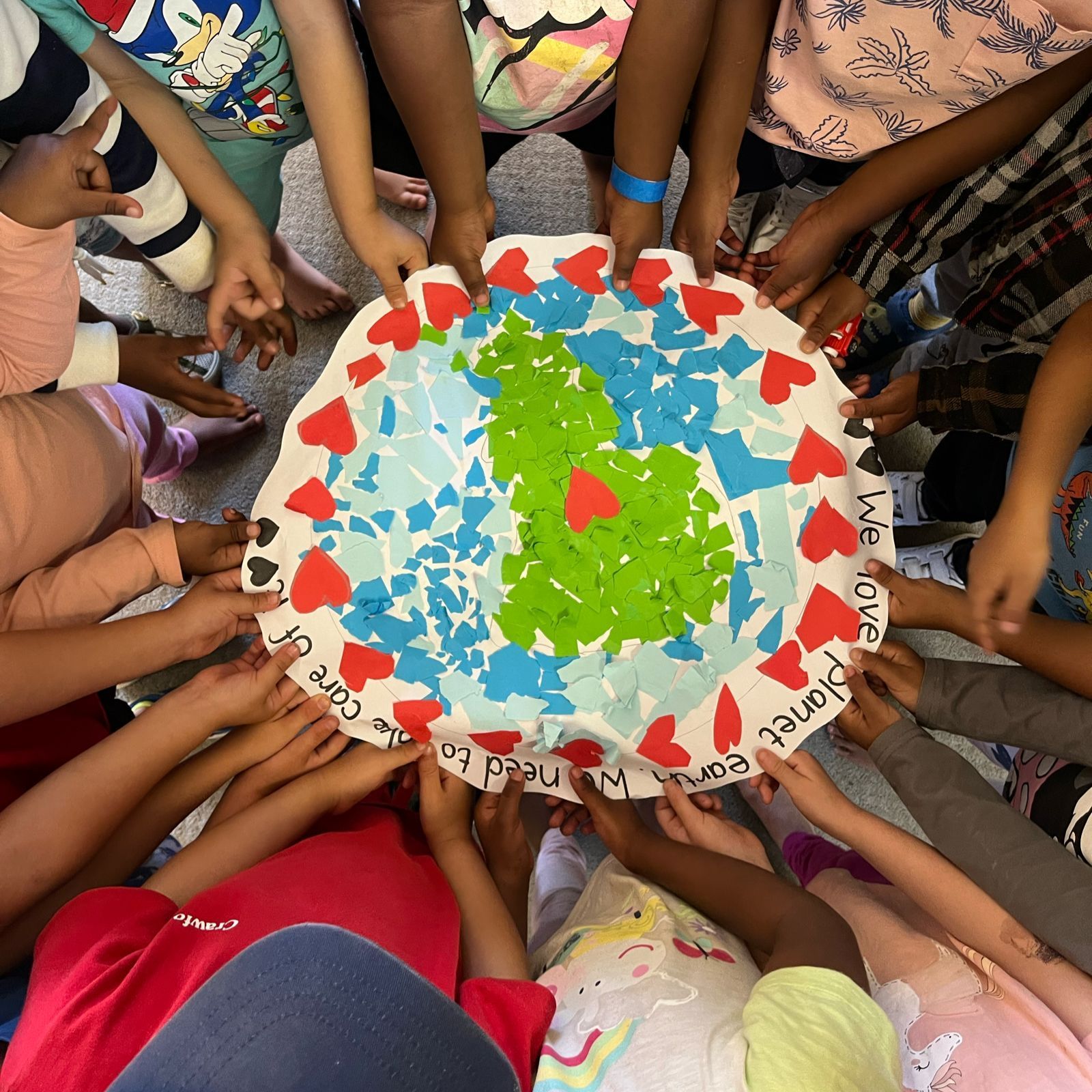
PREPARATORY
Ambassador Announcement
On Friday the 19th April 2024, we had a special celebration at our grand hall, announcing our new ambassadors! Parents joined us to honour and congratulate our new Grade 7 Ambassadors for 2024, and they kept the surprise from our Crawfordians.
Their pledge:
To make a positive impact on the school during their time as ambassadors, stand up for what is right, respect all students, parents, and teachers, be an active example for upholding the code of conduct of our school, provide support to all students, be active in school events, help even when not asked to, work collaboratively with the other Ambassadors and consider many perspectives, act with integrity and honour the role, be devoted to their position, and make their school proud.
With immense pride, we announce the following students as our Grade 7 Ambassadors for 2024:
- Aisha Minty
- Andriana Kaladelfos
- Cherlize Johnson
- Johnson Okafor
- Jordan Godfrey
- Kiyash Harrichand
- Kyle Buys
- Laone Mothibinyane
- Leago Mothibi
- Leeya Singh
- Loagilwe Direro
- Madison Bakewell
- Makanaka Munetsi
- Mikateko Chawane
- Nala Hlabolwa
- Nicholaos Kaladelfos
- Noah Mokgoro
- Nonhlanhla Mdakane
- Ntandonhle Dlamini
- Nyakallo Selepe
- Phoeboe Khangale
- Rami Makwela
- Sinenhlanhla Gwebu
- Siphelele Sibanze
- Siyanda Dikiza
- Sky Domijan
- Tshenolo Molete
- Zahra Klasen
- Zander de Lange


Dragon’s Den
On 19 April 2024, our Grade 7 students embarked on a journey of innovation and entrepreneurship. Under the mentorship of our Grade 7 teachers, our students delved into the needs of local and global communities.
You may ask, what was their mission? To develop creative business ideas addressing these needs and pitch them to our panel of "Dragons"; Shereen Whitcombe, Janette Seton-Rogers, and Ntuby Mokhethi.
Our Crawfordians performed a market research, SWOT analyses, crafted business logos and slogans, and defined visionary mission statements.
The Dragons were impressed by the students' ingenuity and dedication. While the winners are yet to be finalised, all participants showcased exceptional talent and entrepreneurial spirit. We are proud of all our Grade 7’s!

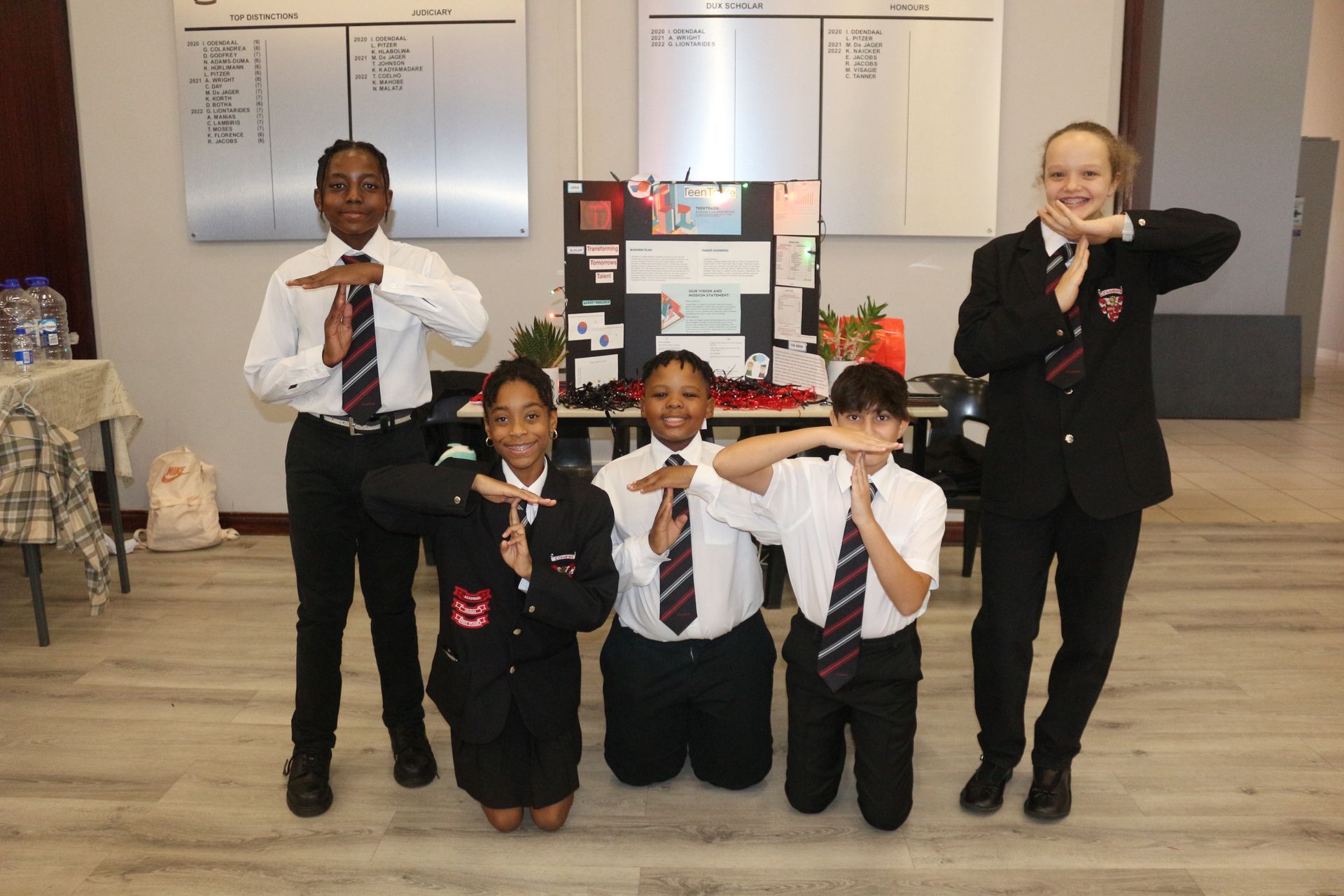
COLLEGE
Celebrating World Book Day
Penguin Random House visited our College Campus to kick off the countdown to World Book Day. The global celebration was just around the corner, taking place on Tuesday, 23 April 2024.
Our students got a sneak peek at some fantastic young adult novels and even had the chance to purchase them from Penguin Random House.
We were stunned by the creativity as students and teachers dressed up as their favourite book characters. The energy and enthusiasm were contagious!
But the celebration doesn’t stop there. We’re also spreading the joy of reading by collecting old books for donation. Help us share the love of reading with those in need by donating your old books.
Every book counts.
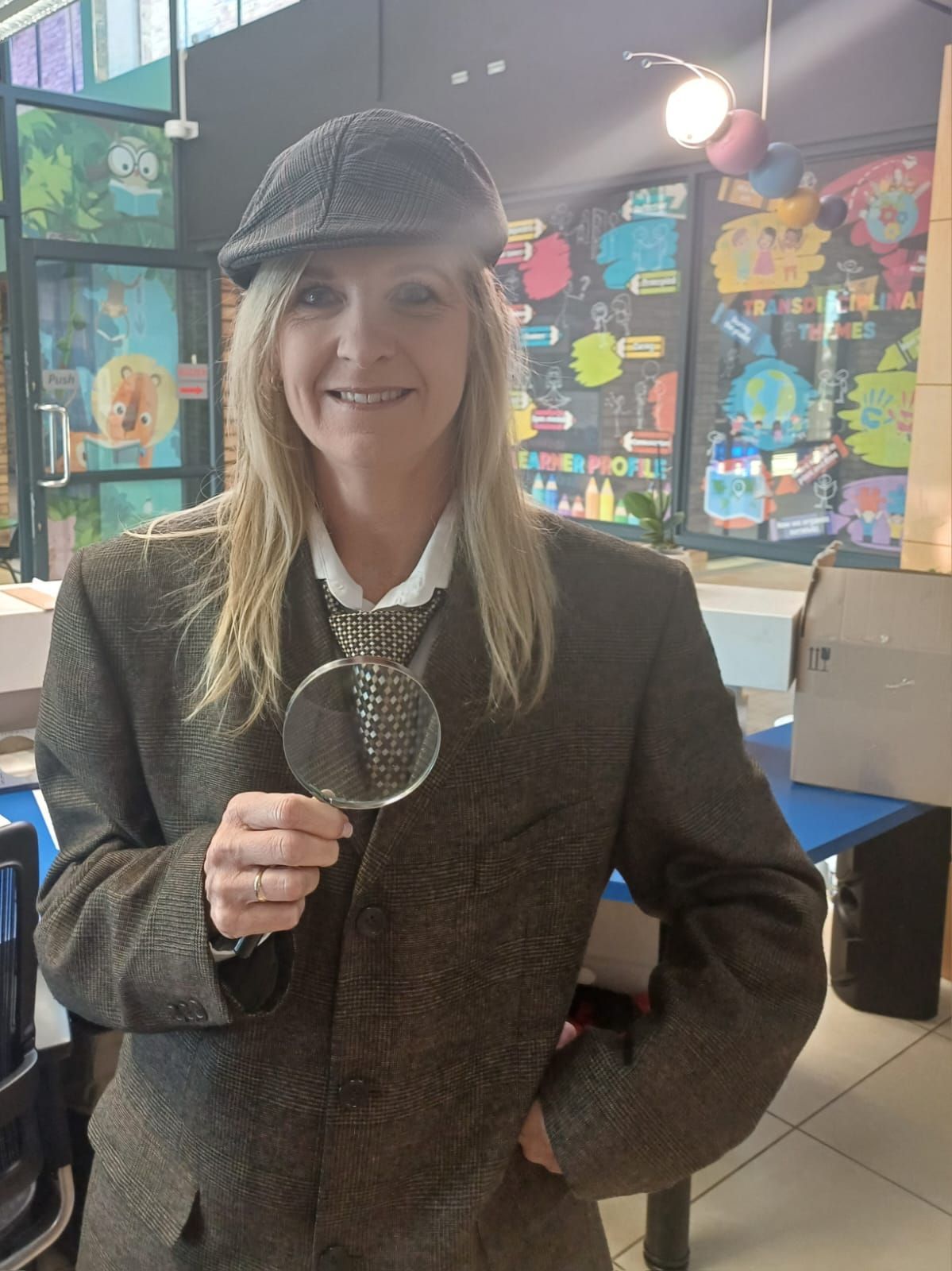

Ruimsig-Lonehill Matric Executive Body Meeting
The Executive Body of Crawford Ruimsig had the privilege of welcoming the Executive Body of Crawford Lonehill to our campus for an afternoon team-building event hosted in the Innovation Station on the 19th of April.
After opening addresses made by Mr Maree and Mr Hughes, the Lonehill Executives were divided, based on their individual interests, into four groups that corresponded to the four pillars of our Executive body, namely, the Academic, Cultural, Service and Sport pillars. The groups then met with their corresponding pillar and the two Executive Bodies discussed their own roles and responsibilities, and shared insights into the running of each body.
These discussions provided many fascinating insights into how the two bodies have adopted different styles of leadership. There were far too many points made for them to all be fairly discussed here. By far, the most interesting of these points is how we have adopted vastly different organisational structures.
The Crawford Lonehill Executive Body is divided into 8 portfolios, each with their respective tasks. Furthermore, their three-person Judiciary forms a separate portfolio wherein they act as liaisons between the Crawford Lonehill Staff and the rest of the Executive. This has been necessary for them to manage many groups of Executives and has resulted in the Judiciary leading via delegation and management of tasks.
This structure is very different to our own wherein each of the four-person Judiciary at Crawford Ruimsig are responsible for one of our 4 pillars and are included in all the decisions made in their pillar. This integrated approach has resulted in the Judiciary of our school adopting a more hands-on role in the leadership of our Executive Body.
It must be pointed out that neither of the above approaches have any distinct superiority over the other. The two styles of leadership serve as two different methods that have the same end effect in tackling the same problem. That is, to effectively lead a Crawford College.
After some light refreshments and reports back on the results of our discussions to the entire group of Executives, Mr De Klerk, the principal of Crawford Lonehill, and Mr Jason Smith, the head of leadership at Crawford Lonehill, made their closing remarks. After which, everybody involved went their separate ways, surely to reflect on everything learnt over the course of the afternoon.
This event was highly beneficial for both Executive Bodies and the lessons learnt will undoubtedly improve the quality of leadership at both Crawford Lonehill and Crawford Ruimsig.
This contribution was made in conjunction with Aedan Yates, Academic Judiciary at Crawford Ruimsig.
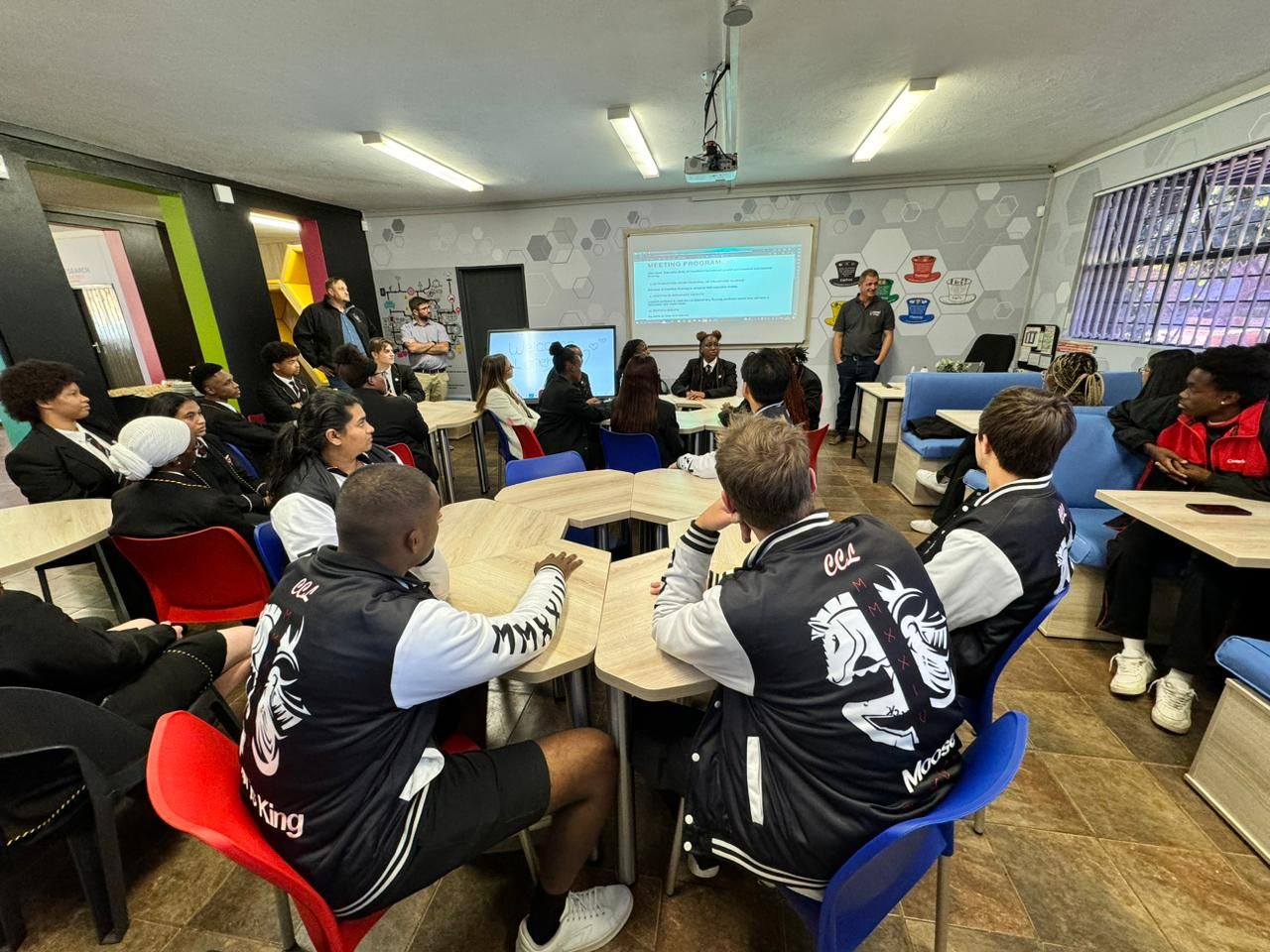
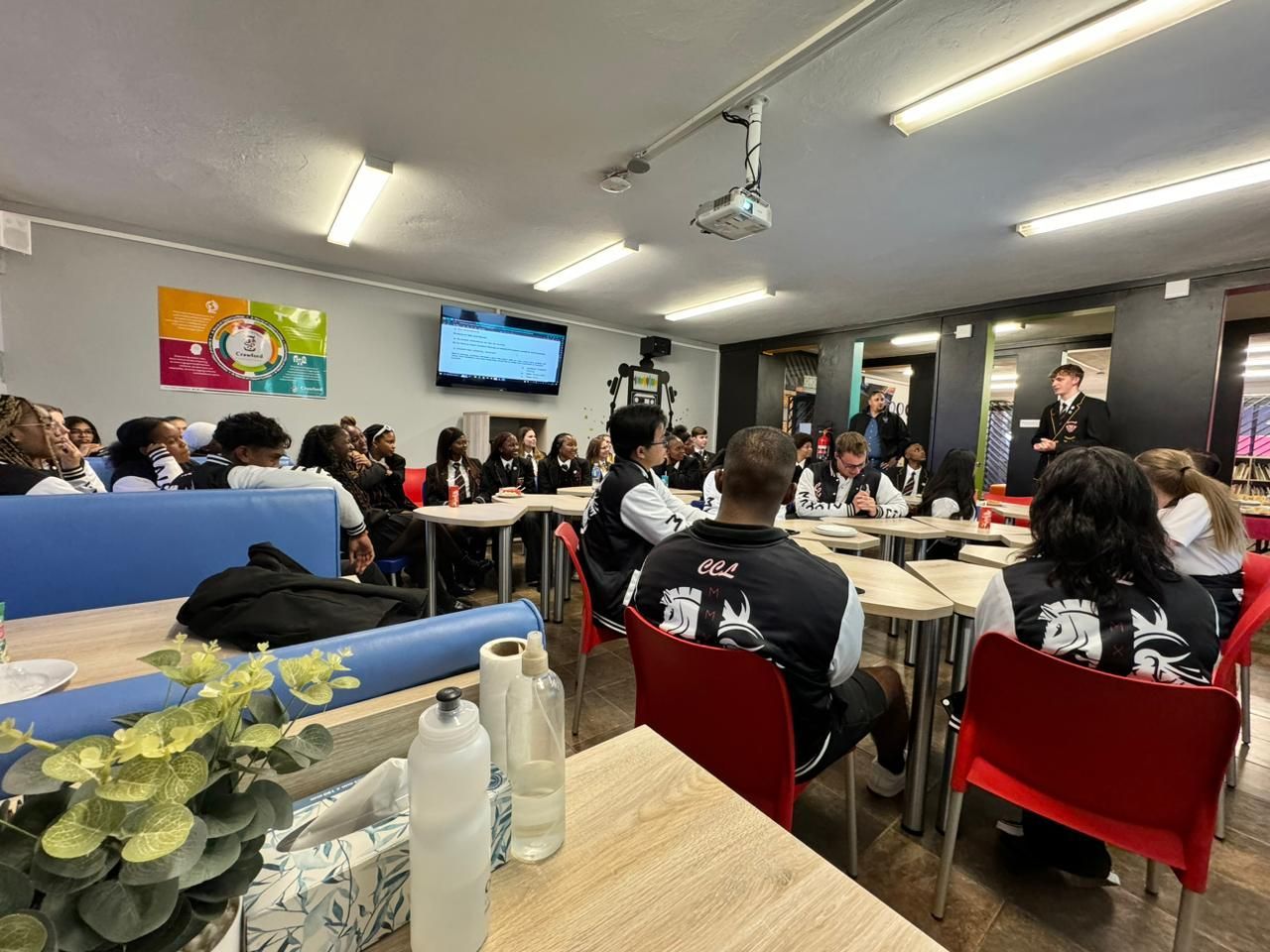
CSI initiative Ruimsig
We have started the year with a bang and have already visited FORA twice this year – Friends of Rescued Animals Our biggest challenge is always to socialise the animals – they are wary of humans as most of them have been abandoned. and abused by people who were supposed to look after them and care for them.
Our Crawfordians always take their challenge to attention every animal on site very seriously. FORA is an NPO and rely on any assistance they can get: food, money or cleaning agents.














